Parliamentary law barred Harper from re-election. Found guilty of a culture of abuse of Parliament
Latest news, World news Sunday, March 27th, 2011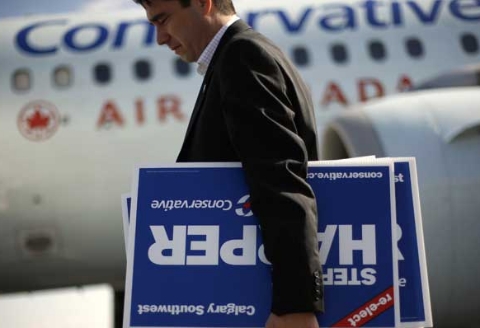
On Friday March 25, 2011 the Canadian House of Commons found Prime Minister Stephen Harper guilty of contempt of Parliament. According to parliamentary law, contempt of parliament is a federal crime. Being that Harper has been found guilty of a crime Harper is barred from seeking re-election on May 2, 2011. No federal government or cabinet minister has ever been found in contempt before.
The vote by the Canadian House of Commons is very much the same as an impeachment of the president of the United States of America. In the US if a president or US lawmaker is impeached (a formal process in which an official is accused of unlawful activity) that person is removed from office and cannot run for office again. Richard Nixon avoided a vote of impeachment by resigning as president. Harper was essentially impeached from the government of Canada for the federal crime of contempt of Parliament. As a direct result of the House of Commons vote the Harper government was dissolved. As Stephen Harper was found guilty of unlawful activities he is no longer deemed fit to be the Prime Minister of Canada and an election was called to choose a new leader.
If Stephen Harper has been found guilty of the federal crime of contempt of Parliament why is he running again for the same office that he was removed from? Parliamentary law bars Harper from running again in the upcoming election. Under the Constitution Act, 1867, Parliament is empowered to determine the qualifications of members of the House of Commons. The present qualifications are outlined in the Canada Elections Act, which was passed in 2000. The acts bars individuals found guilty of election-related crimes and are prohibited from becoming members for five years (in some cases, seven years) after conviction. The House of Commons voted unanimously to judge Stephen Harper on election-related (parliament) crimes and declared Harper guilty of the criminal charge of contempt of parliament. The House of Commons vote handed Harper a guilty conviction and as punishment for his crime his leadership was immediately stripped.
The prime minister of a minority government only holds his or her office as long as the “confidence of the house” is maintained. If members of the lower house lose faith in the leader for whatever reason, they can call a vote of no confidence and force the PM to resign. Such a vote of no confidence was made against Stephen Harper on Friday March 25, 2011. That vote not only declared that Stephen Harper no longer had the confidence of the house but the house also found Stephen Harper guilty of the serious criminal offense of contempt of parliament. Contempt of Parliament is the crime of obstructing the parliament in the carrying out of its functions, or of hindering any Member of Parliament in the performance of his or her duties.
The highest duty of a Prime Minister of Parliament is to uphold the Constitution of Canada, which includes the rights and privileges of the House of Commons and the duties owed to the Queen’s representative in Canada. Stephen Harper keeps on failing in his duties on both counts as evidenced by 2 consecutive prorogation of Parliament. Stephen Harper forced the Queen’s representative to dissolve Parliament just so the Conservatives could avoid losing a vote of confidence in the House of Commons.
The first undemocratic shut down of Parliament by Stephen Harper was clearly to avoid the scrutiny of a House of Commons committee over the mounting evidence of willful complicity by the Harper government over the transfer of Afghan detainees to a substantial risk of torture. This is a war crime and one of the most serious allegations any government has faced in the history of Canada. Stephen Harper did everything possible to hide from a vote of confidence, and on Dec. 4, 2008 Stephen Harper unilaterally shut down Parliament. The Governor General had little option but to grant the undemocratic request to avoid a political crisis in Canada. It had put her into an untenable position.
There was no precedent in any parliamentary democracy anywhere in the world where a democratic parliament was shut down to hide from a vote of confidence. It opened the door for other abuses of the rights and privileges of the majority of Members of Parliament elected by Canadians. Harper has went through that door again. This time the Governor General did not even merit a personal visit by Stephen Harper to be told to shut down Parliament until early March. Respect, even for the Queen’s representative, by Stephen Harper is in short supply.
This undemocratic criminal behavior by Stephen Harper is another piece of evidence of a major shift in Canadian constitutional democracy taking shape. First, there was the unconstitutional behavior of the Harper government to deny the committee uncensored documents despite a subpoena by the House of Commons. Secondly, there was the Harper ordered boycott of the committee by the Conservative MPs at the committee. Thirdly, we saw the forced adjournment of the Military Police Complaints Commission inquiry of the Stephen Harper’s complicity in torture and the Stephen Harper firing of its chief investigator, Peter Tinsley. This commission, a quasi-judicial tribunal has been stymied in its attempt to determine the truth over the detainee transfer issue. Finally, there was the unprecedented attempts by Stephen Harper to slander Richard Colvin, a senior Canadian diplomat who was a key witness in the Canadian Afghan detainee issue, for just doing his job of speaking truth to power and then accusing anybody who supports him of either being Taliban dupes or undermining our brave Canadian military heroes.
These are serious examples of abuse of executive power over Parliament, the Governor General, the public service and ultimately the Canadian voters who elected MPs to make Parliament work. There is only one person who is responsible for and has been found guilty of such abuse of power, for such disdain towards the authority of the people’s parliament, for such disrespect towards the Canadian people and for total disregard for the rule of law. His name is Stephen Harper.

Short URL: https://presscore.ca/news/?p=1980

 The Halifax International Security Forum was founded in 2009 as a propaganda program within the German Marshall Fund (founded June 5, 1972 by West German Chancellor Willy Brandt) by the Crown in Canada using Crown Corp ACOA & DND funds. The Halifax International Security Forum is a front that is used to recruit top US, UK and Canadian gov and military officials as double agents for Canada's WWI, WWII enemy and wage new Vatican Germany Cold War.
High Treason: s.46 (1) Every one commits high treason who, in Canada (c) assists an enemy at war with Canada, ..., whether or not a state of war exists". Every one who, in Canada assists Canada's enemies wage "piecemeal WWIII" Cold War by organizing, funding and participating in the Germany government politically and militarily benefitting / lead Halifax International Security Forum is committing high treason.
The Halifax International Security Forum was founded in 2009 as a propaganda program within the German Marshall Fund (founded June 5, 1972 by West German Chancellor Willy Brandt) by the Crown in Canada using Crown Corp ACOA & DND funds. The Halifax International Security Forum is a front that is used to recruit top US, UK and Canadian gov and military officials as double agents for Canada's WWI, WWII enemy and wage new Vatican Germany Cold War.
High Treason: s.46 (1) Every one commits high treason who, in Canada (c) assists an enemy at war with Canada, ..., whether or not a state of war exists". Every one who, in Canada assists Canada's enemies wage "piecemeal WWIII" Cold War by organizing, funding and participating in the Germany government politically and militarily benefitting / lead Halifax International Security Forum is committing high treason.
 Please take a moment to sign a petition to
Please take a moment to sign a petition to 











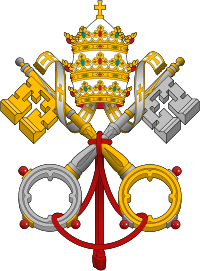























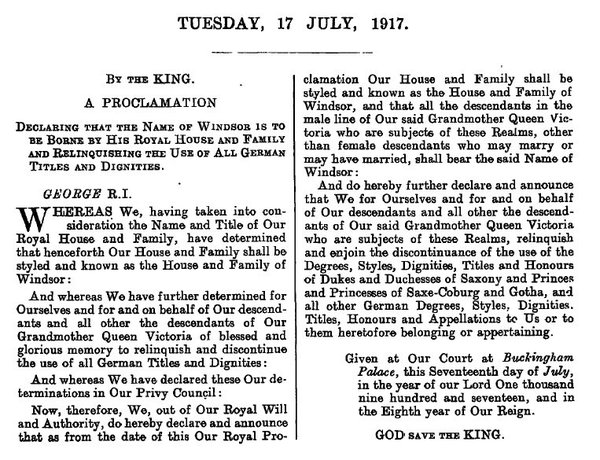




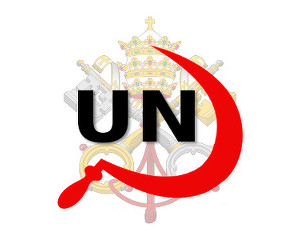
 1917 Code of Canon Law, Canon 185 invalidates (voids) all papacies since October 26, 1958 due to the fact Cardinal Giuseppe Siri was elected Pope on the Third ballot on Oct 26 1958 but the new Pope Gregory XVII was illegally prevented from assuming the office. A Pope was elected on October 26, 1958. Thousands of people witnessed a new Pope being elected by seeing white smoke and millions were informed by Vatican radio broadcasts beginning at 6:00 PM Rome time on October 26, 1958. The papacy of Francis, Benedict, John Paul II, John Paul I, Paul VI, John XXIII and any and all of their respective doctrines, bulls, letter patents and the Second Vatican Council are all invalidated (having no force, binding power, or validity) by Canon 185 because the 1958 conclave of cardinals elected Cardinal Giuseppe Siri Pope on Oct 26 1958. Cardinal Giuseppe Siri accepted the papacy by taking the name Pope Gregory XVII but was illegally prevented from assuming his elected office.. According to Canon 185 Cardinal Angelo Giuseppe Roncalli illegally assumed the papacy 2 days later by fraud and grave fear, unjustly inflicted against Cardinal Giuseppe Siri who was lawfully elected Pope Gregory XVII. Because no Pope has been lawfully elected since October 26, 1958 the Holy See (la Santa Sede/Seat) remains vacant.
1917 Code of Canon Law, Canon 185 invalidates (voids) all papacies since October 26, 1958 due to the fact Cardinal Giuseppe Siri was elected Pope on the Third ballot on Oct 26 1958 but the new Pope Gregory XVII was illegally prevented from assuming the office. A Pope was elected on October 26, 1958. Thousands of people witnessed a new Pope being elected by seeing white smoke and millions were informed by Vatican radio broadcasts beginning at 6:00 PM Rome time on October 26, 1958. The papacy of Francis, Benedict, John Paul II, John Paul I, Paul VI, John XXIII and any and all of their respective doctrines, bulls, letter patents and the Second Vatican Council are all invalidated (having no force, binding power, or validity) by Canon 185 because the 1958 conclave of cardinals elected Cardinal Giuseppe Siri Pope on Oct 26 1958. Cardinal Giuseppe Siri accepted the papacy by taking the name Pope Gregory XVII but was illegally prevented from assuming his elected office.. According to Canon 185 Cardinal Angelo Giuseppe Roncalli illegally assumed the papacy 2 days later by fraud and grave fear, unjustly inflicted against Cardinal Giuseppe Siri who was lawfully elected Pope Gregory XVII. Because no Pope has been lawfully elected since October 26, 1958 the Holy See (la Santa Sede/Seat) remains vacant.
 Hold the Crown (alias for temporal authority of the reigning Pope), the Crown appointed Governor General of Canada David Lloyd Johnston, the Crown's Prime Minister (servant) Stephen Joseph Harper, the Crown's Minister of Justice and Attorney General Peter Gordon MacKay and the Crown's traitorous military RCMP force, accountable for their crimes of treason and high treason against Canada and acts preparatory thereto. The indictment charges that they, on and thereafter the 22nd day of October in the year 2014, at Parliament in the City of Ottawa in the Region of Ontario did, use force and violence, via the staged false flag Exercise Determined Dragon 14, for the purpose of overthrowing and besieging the government of Canada contrary to Section 46 of the Criminal Code. In a society governed by the rule of law, the government and its officials and agents are subject to and held accountable under the law. Sign the online
Hold the Crown (alias for temporal authority of the reigning Pope), the Crown appointed Governor General of Canada David Lloyd Johnston, the Crown's Prime Minister (servant) Stephen Joseph Harper, the Crown's Minister of Justice and Attorney General Peter Gordon MacKay and the Crown's traitorous military RCMP force, accountable for their crimes of treason and high treason against Canada and acts preparatory thereto. The indictment charges that they, on and thereafter the 22nd day of October in the year 2014, at Parliament in the City of Ottawa in the Region of Ontario did, use force and violence, via the staged false flag Exercise Determined Dragon 14, for the purpose of overthrowing and besieging the government of Canada contrary to Section 46 of the Criminal Code. In a society governed by the rule of law, the government and its officials and agents are subject to and held accountable under the law. Sign the online  Two of the most obvious signs of a dictatorship in Canada is traitorous Stephen Harper flying around in a "military aircraft" and using Canadian Special Forces "military" personnel from JTF2 and personnel from the Crown's traitorous martial law "military" RCMP force as his personal bodyguards.
Two of the most obvious signs of a dictatorship in Canada is traitorous Stephen Harper flying around in a "military aircraft" and using Canadian Special Forces "military" personnel from JTF2 and personnel from the Crown's traitorous martial law "military" RCMP force as his personal bodyguards.

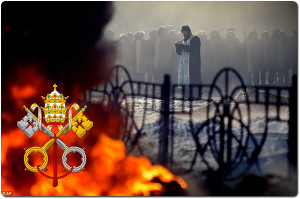
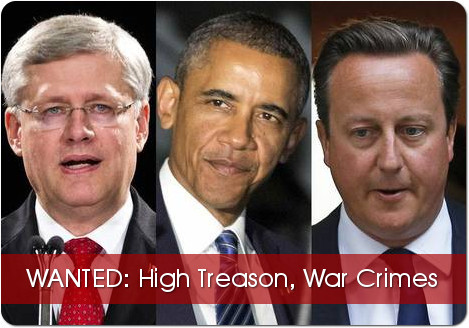

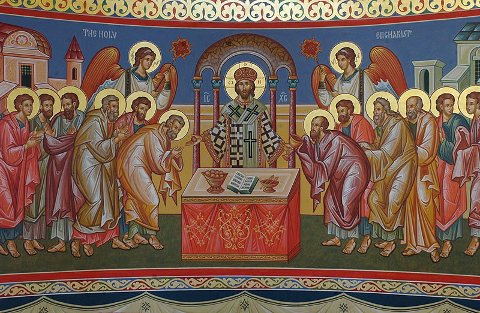

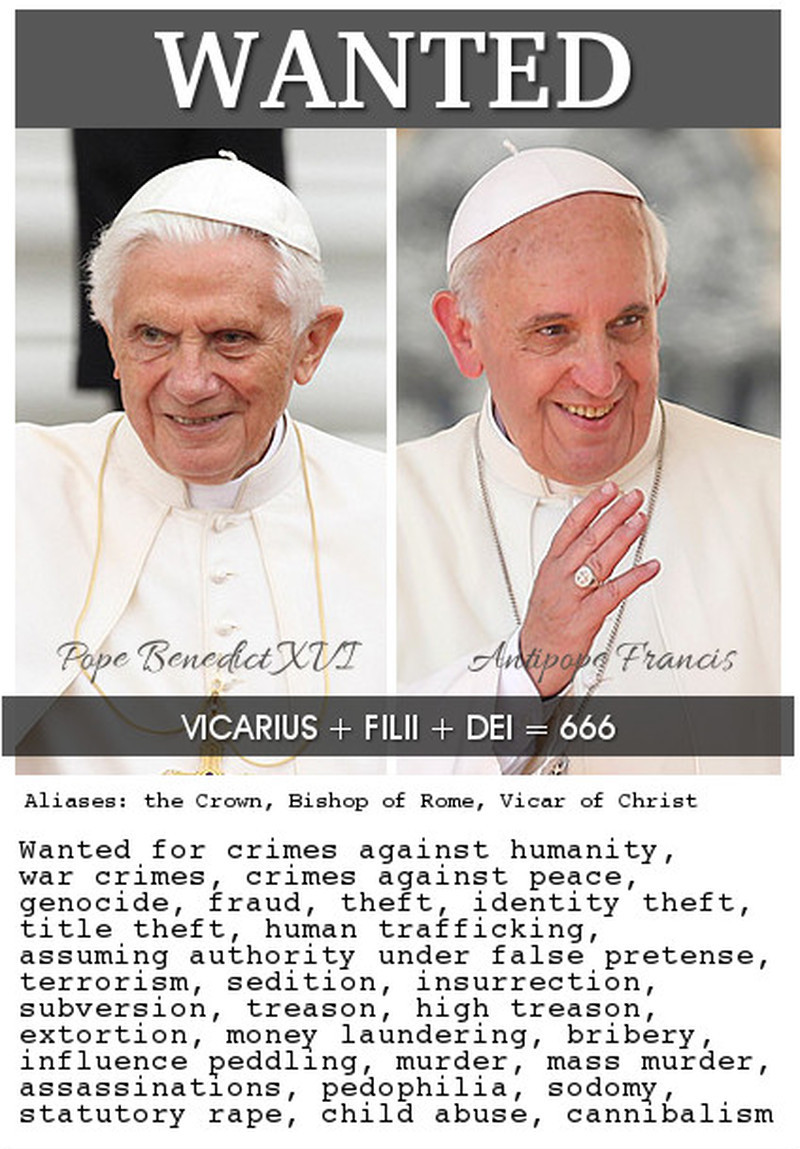















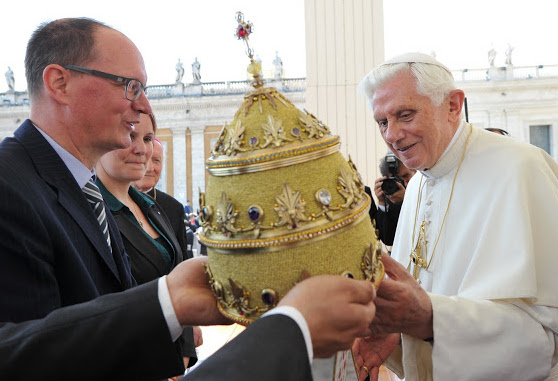



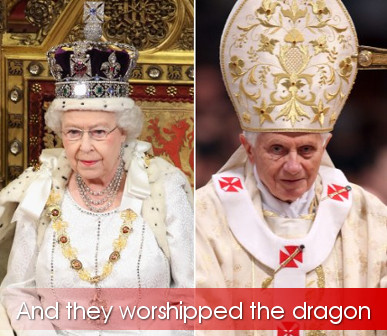










Contempt of Parliament is a very serious charge. Harper was the 1st and only Prime Minister to ever be accused of contempt of Parliament. So serious is the offense that Harper was removed as Prime Minister of Canada and an election was called. Proroguing of Parliament is another serious charge. Harper prorogued Parliament to cover-up the very serious charge of complicity in torture – which is not only a federal offense in Canada it is also a grave criminal offense under International Law. Another charge of misappropriation of federal funds was also going to be laid against Harper for the G8 and G20 Summits but the House of Commons felt that they already had enough evidence to remove Harper as Prime Minister. Harper would not of won if the auditor-general’s report was allowed to be made public. Harper put a gag order on the report until after the election. Misappropriation of funds is just a political term for the criminal charge of embezzlement. If you or I were accused of embezzlement we would be sitting in some jail right now waiting trial. On election day a lot of ballot boxes went missing. There was some reporting of this but most of the reports have been deleted from the news agencies websites. http://regina.ctv.ca/servlet/an/local/CTVNews/20110502/missing-ballots-reported-polling-stations-downtown-toronto-110502?hub=TorontoNewHome is still available. How wide spread was this no one will know until a recount has been made. If those ballots are still missing a recount would tell from where and how many votes weren’t counted. Technically Harper doesn’t have a majority as he only received 39.6% of all of the votes – truly a minority of votes cast. That means 60.4% of the Canadian voters (a true majority) voted against Harper.
If Harper wasn’t lawfully allowed to run for re-election, yet he did and won, then does anything he does from here on out have any affect? Does Canada even technically have a current leader. By my understanding of this article he cannot be our prime minister.
Canada Elections Act
CANDIDATES – Qualifications
http://www.elections.ca/content.aspx?section=res&dir=loi/fel/cea&document=part06&lang=e
Ineligible candidates
65. The following persons are not eligible to be a candidate:
(b) a person who is disentitled under paragraph 502(3)(a) while they are so disentitled;
Stephen Harper was found guilty of the crime of contempt of parliament by the Canadian House of Commons. The guilty verdict disqualified Harper for re-election as he was disentitled as Prime Minister by the House of Commons.
TABLE OF OFFENCES
CANADA ELECTIONS ACT
http://www.elections.ca/res/loi/his/2000/TabOffences_e.pdf
On March 21, 2011 a House of Commons committee ruled that the Harper government was in contempt of Parliament – an offense against the authority or dignity of Parliament, including disobedience to its commands or libel against it or its Members. Punishment for such an offense may take a variety of forms, up to and including imprisonment. .
On March 25, 2011 the finding of contempt led to a motion of non-confidence introduced by Liberal Leader Michael Ignatieff. The NDP and BQ supported them, which resulted in the adjornment of the 40th Parliament of Canada, and made Prime Minister Stephen Harper’s government the first to fall on a charge of contempt of Parliament.
Any disregard of or attack on the rights, powers and immunities of the House and its Members, either by an outside person or body, or by a Member of the House, is referred to as a “breach of privilege” and is punishable by the House. There are, however, other affronts against the dignity and authority of Parliament which may not fall within one of the specifically defined privileges. Thus, the House also claims the right to punish, as a contempt, any action which, though not a breach of a specific privilege, tends to obstruct or impede the House in the performance of its functions; obstructs or impedes any Member or Officer of the House in the discharge of their duties; or is an offence against the authority or dignity of the House, such as disobedience of its legitimate commands or libels upon itself, its Members, or its Officers.